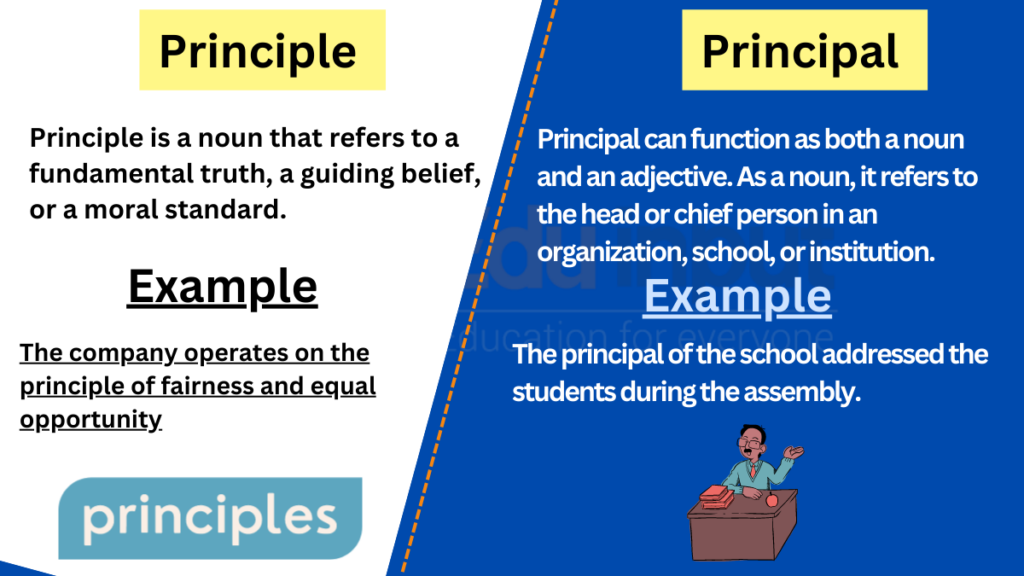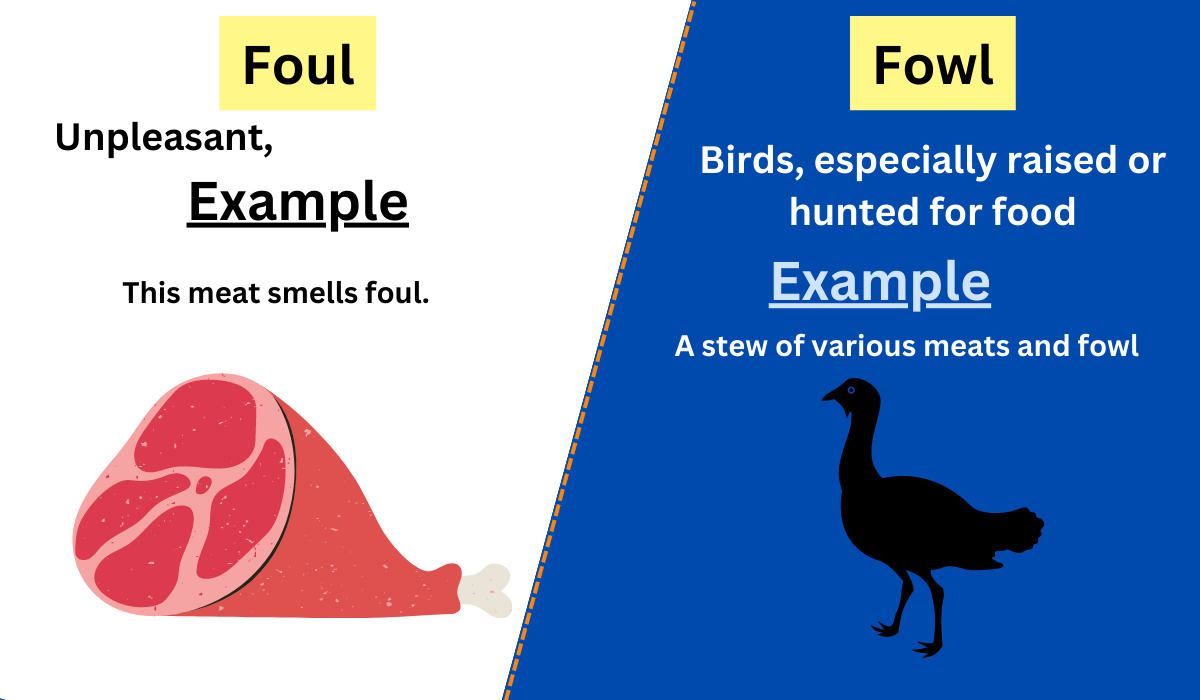Principle vs. Principal-Difference between and Examples
In the English language, certain words may sound similar but carry distinct meanings, leading to confusion in communication. Two such words that often cause confusion are “principle” and “principal.” Despite their similar pronunciation, these words have different definitions and usage. This article aims to clarify the difference between “principle” and “principal” by providing clear explanations and examples. Let’s delve into the worlds of ethics and academia to understand their unique meanings.

Meanings and Examples
Principle meaning
Principle is a noun that refers to a fundamental truth, a guiding belief, or a moral standard. It represents a fundamental concept or a general rule that governs behavior or actions.
Principle Examples
a) She adhered to the principles of honesty and integrity.
b) The company operates on the principle of fairness and equal opportunity.
c) The principle of supply and demand influences market prices.
Principal meaning
Principal can function as both a noun and an adjective. As a noun, it refers to the head or chief person in an organization, school, or institution. It can also denote a sum of money invested or lent or the main performer in a performance or event. As an adjective, “principal” means primary or main.
Principal Examples
a) The principal of the school addressed the students during the assembly.
b) He borrowed a significant amount from the bank and repaid the principal amount over time.
c) The principal dancer captivated the audience with her graceful performance.
Difference between Principle and Principal
| Principle | Principal | |
| Meaning | Noun: fundamental truth, guiding belief, moral standard | Noun: head or chief person, sum of money invested, main performer |
| Example | “She adhered to the principles of honesty and integrity.” | “The principal of the school addressed the students during the assembly.” |
| Usage | Ethics, beliefs, general rules | Academia, finance, performance arts |
| Context | Ethics, philosophy, decision-making | Education, finance, arts and entertainment |
Usage in a Paragraph
The term “principle” is primarily used as a noun and represents a fundamental truth or guiding belief. Principles serve as moral standards and govern behavior or actions. They are essential for individuals, organizations, and societies to uphold ethical values and make informed decisions. Adhering to principles such as honesty, fairness, and respect fosters trust and integrity in personal and professional relationships. Additionally, the principle of supply and demand influences economic decisions and market dynamics, shaping prices and availability.
On the other hand, “principal” can function as both a noun and an adjective. As a noun, it refers to the head or chief person in an organization, school, or institution. The principal plays a crucial role in leading and managing the institution, making important decisions, and ensuring its smooth functioning. Furthermore, “principal” can denote a sum of money invested or lent, representing the initial amount before interest or other gains or losses. In the context of the arts and entertainment, the principal performer takes on a leading role, captivating the audience with their talent and skill.
Understanding the distinction between “principle” and “principal” is crucial for effective communication. “Principle” pertains to fundamental truths, guiding beliefs, and moral standards that govern behavior, while “principal” refers to a person in a position of authority, a sum of money, or the main performer in a performance. By utilizing these words correctly and recognizing their unique meanings, individuals can avoid confusion and express themselves accurately in various contexts.







Leave a Reply